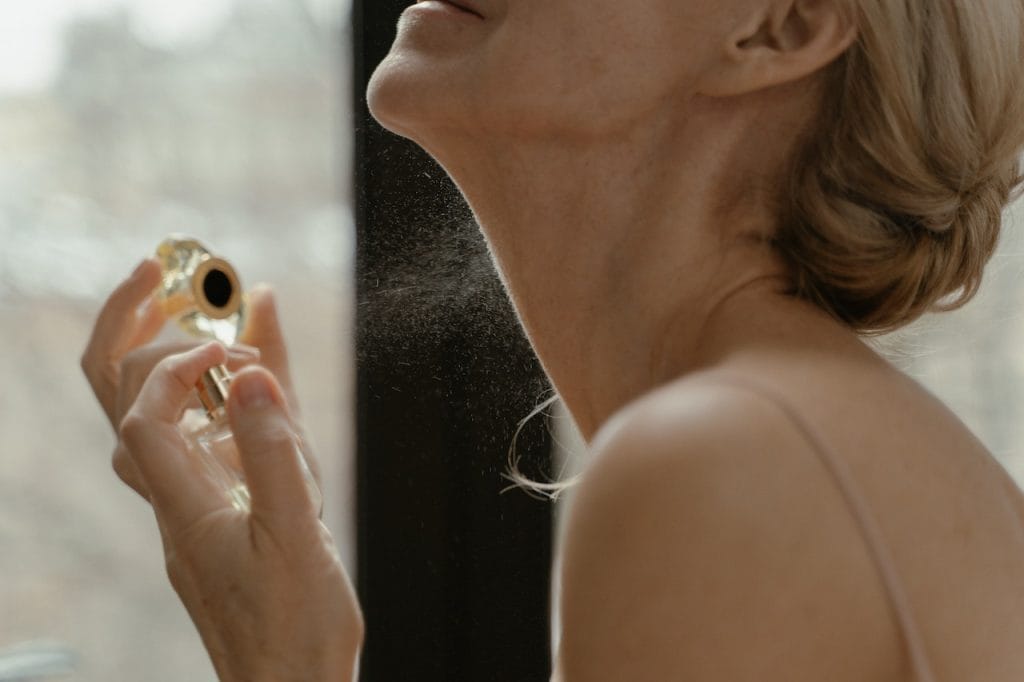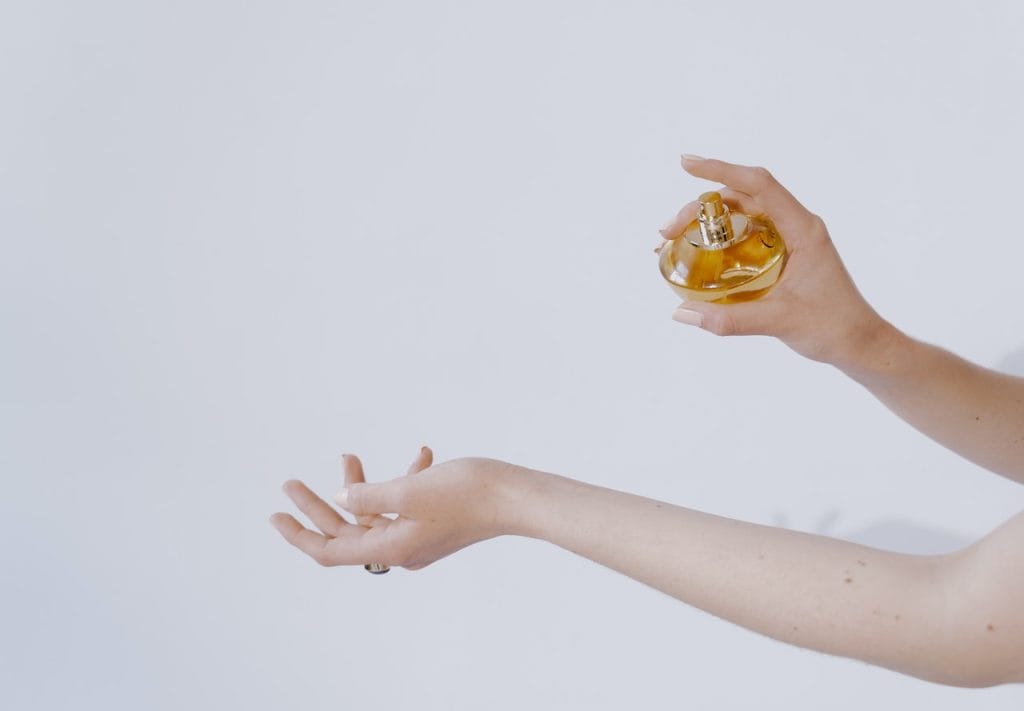Marketers claim that cosmetics and perfumes containing pheromones can make a person more sexually attractive to others. We decided to check if this is possible.
On many websitesspecializing in sale cosmetics and perfumes can be found articles about miraculous properties pheromones. Some of them notethat perfumes with human pheromones are prohibited in Russia and Europe, so they suggest products, containing pig pheromones: they supposedly have the same effect on humans. Perfumery With pheromones - quite popular product at the largest Russian marketplaces.
Pheromones are chemical substances secreted by living organisms to cause a certain reaction in members of the same species. They are widespread in insects, crustaceans and mammals. Sometimes these substances they are simply thrown into the air, and sometimes animals “leave” them in specific places to attract a male or female or to mark their territory. For example, this is how cats act when they rub against objects or people - they let other animals know that this territory is already occupied. So appointment pheromones are not only used to attract creatures of the opposite sex for the purpose of reproduction.
Where did the idea that humans also have pheromones come from? All started with the pseudo-discovery that the female menstrual cycle is synchronized if women live together or are constantly in close contact, supposedly as a result of their mutual hormonal “pollination”. We already debunked this myth (spoiler: cycles can be synchronized by pure chance, and not at all as a result of any hormones). Then in 1991, at a scientific conference in Paris, sponsored by the EROX Corporation, presented two pheromones - androstadienone and estratetraenol (male and female, respectively). It is worth noting that EROX had commercial interest in pheromones. The scientists’ work did not indicate at all how they discovered these substances and how they were extracted; they only reported that the pheromones were provided by the EROX corporation. However, scientists claimed that during experiments they were able to confirm the effect of these substances on the opposite sex.
Despite the fact that the study did not inspire much confidence, since 1991 androstadienone and estratetraenol have been used more than once were studied and other scientists. Thus, in 2000, biologist Martha McClintock from the University of Chicago partly supported her colleagues, but she noted that it was premature to call these substances pheromones. Although the results of some studies were positive, the experiments carried out don't call great confidence among many scientists (due to the small sample of subjects, some bias of the experimenters themselves, who stopped the research as soon as they saw the desired result, and the lack of repeated tests). Richard L. Doty, director of the Center for Smell and Taste at the University of Pennsylvania, devoted an entire book to criticism of these experiments, which is called - "The Great Myth of Pheromones". He is not at all sure that androstadienone and estratetraenol can be attributed to this group of substances.
It is worth noting that smells do play a certain role in attracting people to each other. Conducted experiments, where women were allowed to smell T-shirts that had been worn by men for several days. The scientists then compared how a woman rated a potential partner based on the smell of her T-shirt with that partner's genotype. It turned out that the more different it was from her own, the more pleasant the smell was to her. Experiments like this are often cited as evidence that pheromones work, but this is not the case. Pheromones should be the same act on all representatives of a particular biological species, but here the smells had different effects on different women.
On some sites offer fragrances with “oils of animal origin”. However, if these are pheromones of pigs or dogs, then act they will specifically target pigs or dogs, and not at all male or female humans, since pheromones only affect representatives of the same species. Otherwise, interspecific crossing would be common in nature.
Thus, scientists are still can't to unambiguously answer the question of whether people have pheromones, since existing studies are either not convincing enough or give conflicting results.
For successful communication, it is necessary that people not only release pheromones, but also capture them. In animals, the vomeronasal organ is responsible for this. Scientists didn't come to a consensus on whether a person has it and, if so, whether it performs its function. Some people think that we have it, but it’s rudimentary, while others think that we have it at all lost it was around the same time that they acquired color vision and began to rely more on visual images than on smell.
However, there were experiments, during which a certain amount of that same androstadienone was applied to women under their noses. This caused an improvement in mood and increased concentration, which in general can actually have some effect on attraction to the opposite sex. However, animals can smell pheromones from several kilometers away; in this experiment, direct contact was required to have any effect.
Another experiment, indirectly confirming the possibility of the existence of human pheromones, was carried out by scientists from the Weissman Institute of Science in Israel. They collected the tears of women who had just watched a sad film and gave them to the men to smell. As a result, their testosterone levels and sexual arousal decreased, as if the smell of tears told them that they should not count on romance. Scientists emphasize that this may be indirect evidence of the existence of pheromones, which, on the contrary, will increase attraction, but they have not yet been found.
And here we come to why pheromones, even if they are actually found, can be produced on an industrial scale and added to perfumes, will not work in people the same way as in animals. The point is that sexy attraction humans are much more complex than animals, and based not only on physiological reactions, but also on personal preferences, cultural characteristics, previous experience and many other factors. Therefore, it is definitely not worth considering pheromones as some kind of scientific analogue of a love potion.
However, perfumes with pheromones May be some psychological placebo effect. People who use them feel and behave more confidently, which in turn makes them more sexually attractive. So in that sense, they can really help attract a partner.
It is also worth considering that perfume products are not particularly strictly regulated regulatory authorities. It must be safe for humans, but the manufacturer is not required to disclose every ingredient to the consumer. Thus, there is no guarantee that the declared pheromones are even present in the composition; no one checks this. Besides, complain Scientists, the meaning in which this word is often used - a pleasant, attractive smell - is very far from its scientific definition. Real pheromones in the animal world at all don't attract partners, they force them, that is, they cause an uncontrollable physiological reaction.
Thus, pheromones that cause sexual attraction do exist, but only in the animal world. Scientists admit that perhaps the human body also produces and secretes them, but no such pheromone has yet been found. In addition, it is likely that humans lack the mechanism that is supposed to capture and transmit these pheromones to the brain. What is sold in stores under the guise of such perfumes, at best, contains animal pheromones, which will only act on animals of this species, and at worst, they do not contain anything different from other perfumes. But such products can really increase a person’s attractiveness - if he himself feels more confident and sexy with them and behaves accordingly.
Cover photo: Film “Perfume: The Story of a Murderer”, dir. T. Tykver, stage. E. Birkin, P. Suskind, comp. R. Heil, 2006.
Mostly not true
Read on the topic:
- Is it true that girls who live together have synchronized periods?
- Is it true that only humans and dolphins enjoy sex?
- Is it true that love lasts three years?
If you find a spelling or grammatical error, please let us know by highlighting the error text and clicking Ctrl+Enter.









